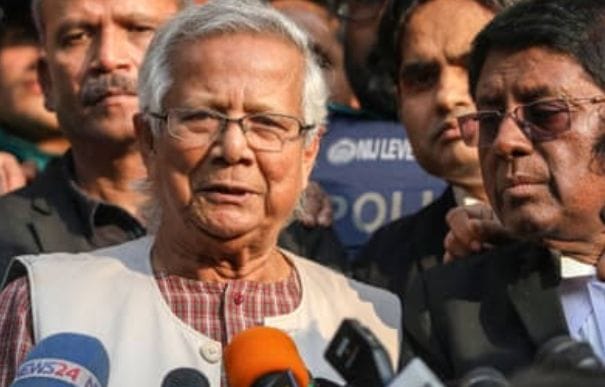Headlines
Nobel Laureate Muhammad Yunus Appointed as Bangladesh’s Interim Leader

Nobel Laureate Muhammad Yunus has been appointed as Bangladesh’s interim leader amid political turmoil. Learn more about this significant development.
Following the removal of Prime Minister Sheikh Hasina, Muhammad Yunus – a Nobel Prize awardee recognized for his innovative contributions in microloans – has been appointed as Bangladesh’s interim leader.
Amidst widespread protests that have shaken the country, this appointment is taking place during a time of intense political turmoil.
Yunus, who is 84 years old, was named to his new position the day after Hasina left the country. Her departure followed deadly protests calling for her resignation. Yunus has had a longstanding feud with Hasina and she views him as an enemy of the public. He’s currently appealing a six-month prison sentence which he alleges is based on political bias.
Read Also: Bangladesh PM Resigns and Flees Amidst Protests as Demonstrators Storm Palace (VIDEO)
Initially, the demand to abolish quotas in civil service jobs sparked student-led protests that resulted in Hasina’s removal. However, these demonstrations rapidly transformed into a wider anti-government rebellion. There are reports of over 400 fatalities due to clashes, with one day alone resulting in more than 100 deaths from violent confrontations. Additionally, numerous police stations were set on fire during the peaceful uprisings.
Following the tumultuous situation, pupil leaders demanded a temporary civilian government and opposed any military-led governance. After holding talks with President Mohammed Shahabuddin, student representatives and army officials were able to make their bid for Yunus as interim chief advisor successful.
As per his spokesperson, Yunus is anticipated to arrive in Dhaka shortly after undergoing a minor medical procedure while currently being present in Paris.
Yunus’s impact goes beyond his political position to the establishment of Grameen Bank in 1983, which aims to assist impoverished individuals by offering microloans for small business startups. The innovative concept has received worldwide recognition and contributed significantly to economic growth globally. Despite various accusations such as tax evasion and labor law violations over time, Yunus maintains that these claims are unfounded and politically influenced.
For their work in empowering the impoverished through economic development, Yunus and Grameen Bank were granted the Nobel Peace Prize in 2006. Since then, he has gained widespread recognition as a “banker for the underprivileged” on an international level.
While Bangladesh undergoes this phase of change, everyone is closely observing Yunus and his potential to guide the country through its present obstacles.
